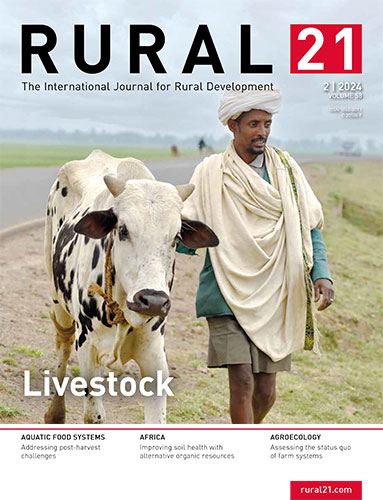- Share this article
- Subscribe to our newsletter
World Social Protection Report 2024-26
Governments are failing to make full use of the powerful potential of social protection to counter the effects of the climate crisis and support a just transition, according to the World Social Protection Report 2024-26: Universal social protection for climate action and a just transition published by the International Labour Organization (ILO) in September 2024. The report also finds that those countries most vulnerable to the effects of climate change often have the lowest levels of social protection.
For the first time, more than half of the global population (52.4 per cent) has some form of social protection coverage. This is up from 42.8 per cent in 2015, the year when the Sustainable Development Goals were adopted.
However, in the 20 countries most vulnerable to the climate crisis, 91.3 per cent of people (364 million) still lack any form of social protection. Looking more broadly, in the 50 most climate-vulnerable countries, 75 per cent of the population (2.1 billion people) lack any social protection coverage. Globally, most children (76.1 per cent) still have no effective social protection coverage. There is also a substantial gender gap, with women’s effective coverage lagging behind men’s coverage (50.1 and 54.6 per cent, respectively).
These gaps are especially significant given the potential role of social protection in softening the impact of climate change, helping people and societies adapt to a new climate-volatile reality, and facilitating a just transition to a sustainable future.
Social protection can help people adapt to and cope with climate-related shocks by providing social protection benefits, such as income security and access to healthcare.
Moreover, social protection can cushion families, workers and enterprises during the green transition and enable more sustainable economic practices. This includes supporting workers with training and up-skilling so that they are equipped with knowledge and skills for employment in green and low carbon sectors. Social protection also ensures that all jobs are decent, with adequate protection and benefits.
Yet, despite its role as a catalyst and an enabler of positive climate action, governments are failing to make the most of social protection’s potential, largely because of persistent coverage gaps and significant underinvestment.
On average, countries spend 12.9 per cent of their gross domestic product (GDP) on social protection (excluding health). However, while high-income countries spend an average of 16.2 per cent, low-income countries allocate only 0.8 per cent of their GDP to social protection. Low-income countries – which include states most vulnerable to the impacts of climate change – need an additional USD 308.5 billion per year (52.3 per cent of their GDP) to guarantee at least basic social protection, and international support will be needed to reach this goal.
The report calls for decisive and integrated policy action to close protection gaps, arguing that “it is time to up the ante” and invest significantly in social protection. The report offers important recommendations to help guide policy and ensure effective and sustainable outcomes, including:
- preparing for both “routine” life-cycle risks, as well as climate-related shocks by having social protection systems in place ex-ante by ensuring everyone enjoys adequate social protection
- using social protection to support climate change mitigation and adaptation efforts and secure public acceptance of those measures
- prioritising investment in social protection, including external support for countries with limited fiscal space
(ILO/ile)




Add a comment
Be the First to Comment